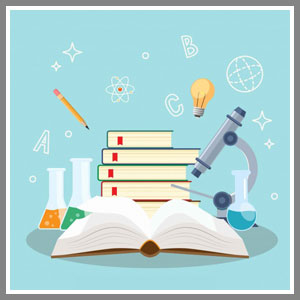
SCIENCE (PHYSICS/CHEMISTRY/BIOLOGY) :
Our curriculum aims at developing the six domains of Science: Concepts, Processes, Applications, Attitudes, Creativity and Worldview (Nature of Science).
Science branches out into its three streams i.e Physics, Chemistry and Biology from the Upper Primary level
PHYSICS : It is the study of matter, energy and its interactions. It attempts to explain how nature works using the language of mathematics. Physics generates fundamental knowledge which is needed for the future technological advancements.
CHEMISTRY : Chemistry applies to various aspects of day to day life. Numbers of activities/experiments are done to show different chemical changes. By performing various experiments students develop scientific skills such as, observation, measurement, analysis, interpretation, drawing conclusions, etc.
BIOLOGY : It is perhaps the most fascinating of all the sciences, as it is the science of life, and is aptly called life science.Students learn about the two branches of Biology , Botany and Zoology in integration with each other.
Through our curriculum we try to enable students to learn to appreciate the diversity of life on earth, understand the flow of energy and matter in biological systems, interpret the process and outcomes of evolution ,appreciate interdependence of living things, learn the mechanisms of genetic inheritance and information flow.
LABORATORIES
Experimentation is an integral part of all the three branches of science. The well equipped Physics, Chemistry and Biology laboratories in school aims at enabling students to learn theories in a more elaborative manner with the involvement of its application. The school laboratory familiarizes students with experimental apparatus, students learn to make careful experimental observations and how to think about and draw conclusions from such data. Students verify the core concepts themselves in the lab by doing hands on experiment.
 DAFFODILS HIGH PUBLIC SCHOOL
(Affiliated To ICSE - MA228)
DAFFODILS HIGH PUBLIC SCHOOL
(Affiliated To ICSE - MA228)
 DAFFODILS HIGH PUBLIC SCHOOL
(Affiliated To ICSE - MA228)
DAFFODILS HIGH PUBLIC SCHOOL
(Affiliated To ICSE - MA228)